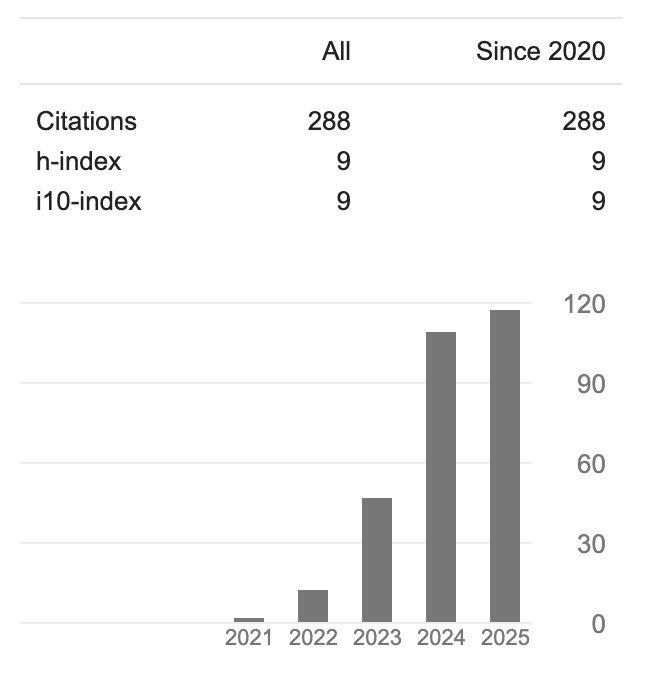Implementation of Inquiry Learning Model on Students' Civics Learning Outcomes of Grade V Elementary School
Abstract
This study examines the application of the inquiry learning model to the learning outcomes of Civic Education (PKn) of grade V students of SD Inpres I Tobelo, North Halmahera. This study was motivated by the low involvement and achievement of students in Civic Education learning. The inquiry learning model was applied to stimulate critical thinking, active participation, and student responsibility, which aims to improve their understanding of the concept of citizenship and foster democratic attitudes. This study used a qualitative descriptive approach, which included observation, interviews, and testing to assess the impact of the inquiry model. The findings showed a significant increase in student learning outcomes, with higher participation, better understanding of the concept of citizenship, and stronger critical thinking skills. This study contributes to educational practice by advocating inquiry-based learning as an effective strategy to engage students and improve educational outcomes, especially in remote areas such as North Halmahera.
Copyright (c) 2025 Journal of Elementary Educational Research

This work is licensed under a Creative Commons Attribution-NonCommercial-ShareAlike 4.0 International License.
Please find the rights and licenses in Jurnal JEER: Jurnal of Elementary Educational Research. By submitting the article/manuscript of the article, the author(s) agree with this policy. No specific document sign-off is required.
- License
The non-commercial use of the article will be governed by the Creative Commons Attribution license as currently displayed on Creative Commons Attribution-NonCommercial-ShareAlike 4.0 International License.
- Author(s)' Warranties
The author warrants that the article is original, written by stated author(s), has not been published before, contains no unlawful statements, does not infringe the rights of others, is subject to copyright that is vested exclusively in the author and free of any third party rights, and that any necessary written permissions to quote from other sources have been obtained by the author(s).
- User/Public Rights
JEER: Jurnal of Elementary Educational Research's spirit is to disseminate articles published are as free as possible. Under the Creative Commons license, JEER: Jurnal of Elementary Educational Research permits users to copy, distribute, display, and perform the work for non-commercial purposes only. Users will also need to attribute authors and JEER: Jurnal of Elementary Educational Research on distributing works in the journal and other media of publications. Unless otherwise stated, the authors are public entities as soon as their articles got published.
- Rights of Authors
Authors retain all their rights to the published works, such as (but not limited to) the following rights;
- Copyright and other proprietary rights relating to the article, such as patent rights,
- The right to use the substance of the article in own future works, including lectures and books,
- The right to reproduce the article for own purposes,
- The right to self-archive the article (please read out deposit policy),
- The right to enter into separate, additional contractual arrangements for the non-exclusive distribution of the article's published version (e.g., post it to an institutional repository or publish it in a book), with an acknowledgment of its initial publication in this journal (JEER: Jurnal of Elementary Educational Research).
- Co-Authorship
If the article was jointly prepared by more than one author, any authors submitting the manuscript warrants that he/she has been authorized by all co-authors to be agreed on this copyright and license notice (agreement) on their behalf, and agrees to inform his/her co-authors of the terms of this policy. JEER: Jurnal of Elementary Educational Research will not be held liable for anything that may arise due to the author(s) internal dispute. JEER: Jurnal of Elementary Educational Research will only communicate with the corresponding author.
- Royalties
Being an open accessed journal and disseminating articles for free under the Creative Commons license term mentioned, author(s) aware that JEER: Jurnal of Elementary Educational Research entitles the author(s) to no royalties or other fees.
- Miscellaneous
JEER: Jurnal of Elementary Educational Research will publish the article (or have it published) in the journal if the article’s editorial process is successfully completed. JEER: Jurnal of Elementary Educational Research's editors may modify the article to a style of punctuation, spelling, capitalization, referencing and usage that deems appropriate. The author acknowledges that the article may be published so that it will be publicly accessible and such access will be free of charge for the readers as mentioned in point 3.













